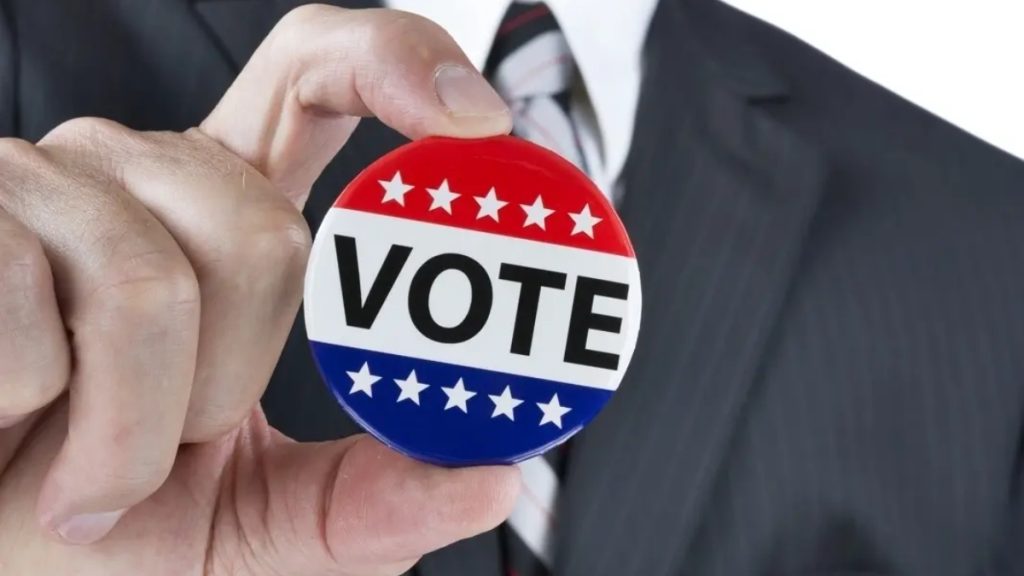On November 5, 2024 (or sooner) voters across the United States will make their big choice for president. As they head to the polls for the general election, most will have the presidential candidates at the top of their minds. There will, however, also be a number of state and local candidates and issues on the ballot. Here are some big deal ballot measures up for consideration in 2024 and what they might mean for the country’s future.
1. Los Angeles Prop 3: Right to Marry
Even though same-sex marriage became legal across the nation in 2015, L.A. voters will vote on the definition of marriage in 2024. Proposition 3 would strike language from the California state constitution that defines marriage as only between “a man and a woman.” In 2008, the state codified this language when it voted to approve Proposition 8. Even when the U.S. Supreme Court legalized same-sex marriage, the problematic phrase remained on the State constitution.
If approved, Proposition 3 would alter the language in the State Constitution to read “the right to marry is a fundamental right.” It would not, in practice, impact who can currently get married in California, or change any tax laws. The purpose of Proposition 3, as explained in this LA voter guide, is to “safeguard marriage rights from future legal challenges” and “reaffirm civil liberties.” Objectors assert Prop 3 could somehow lead to incest and child marriage.
2. New York City Prop 1: Reproductive Protections
Meanwhile, in New York City, voters will decide on Prop 1, which protects abortion rights without ever actually mentioning them. The broadly worded amendment to New York State’s constitution would protect against the unequal treatment of a variety of groups. It would protect individuals based on, among other categories, “sexual orientation, gender identity, gender expression, pregnancy and pregnancy outcomes, and reproductive healthcare and autonomy.”
There has been significant controversy around the wording of the proposal, which many Republicans say is too vague. Others have complained that the wording, particularly on the ballot, isn’t easy enough to understand or doesn’t comply with the state’s plain-language law. In New York state, abortion is currently legal for people of all ages, for any reason, through the six months of pregnancy. It is also legal after six months if the health of the mother or fetus is at risk.
3. Omaha and Beyond: Competing Abortion Measures
New York isn’t the only place abortion appears on the ballot; at least ten states have confirmed a measure pertaining to abortion rights. In Missouri cities, voters will decide whether to reverse the state’s total abortion ban, the first after Roe v. Wade was overturned. In Omaha, voters will receive city ballots featuring two conflicting abortion measures. Nebraska is the only state (so far) to have one measure enshrining abortion and another mostly banning it.
The Nebraska state constitution currently bans abortion after 12 weeks, with exceptions for rape, incest, or to save the life of the mother. One ballot measure would enshrine this law into the constitution, making it more challenging to expand abortion rights. The opposing ballot initiative would extend this period, protecting the right to abortion until fetal viability. The nine other states with abortion measures on the ballot are also designed to protect or expand abortion rights.
4. Boston Question 4: Psychedelics
While other cities are debating human rights, Bostonian voters will be focused on fungi. The Massachusetts state ballot will include a measure advancing the legalization and regulation of psilocybin and psilocin, or magic mushrooms. The bill would also legalize controlled use of the psychedelic substances dimethyltryptamine, mescaline, and ibogaine. Currently, the use of these substances is illegal under federal law, but several states have decriminalized their use.
Many studies have shown that certain psychedelics have promise when it comes to treating mental illness. These drugs may alleviate symptoms of treatment-resistant depression, anxiety, PTSD, and other disorders. Psychedelics may work by facilitating neuroplasticity, helping the brain reorganize itself and function differently. Their controlled, legal use could also help users quit drinking or smoking, and reduce attention-seeking behaviors.
5. Various Cities: Non-Citizen Voting
Since 1924, it has been illegal for non-citizens to vote in any U.S. state or federal election. In 1996, Congress added criminal penalties for non-citizen voting, including up to five years in federal prison and even deportation. Even so, some states have added measures to their ballots to codify the prohibition of non-citizen voting. News sources and immigrant rights organizations say this is to mainly drum up fear and xenophobia, since non-citizen voting is actually very rare.
In Missouri, Amendment 7 would update language in the Missouri Constitution that currently states “all” U.S. citizens can vote. The new language would specify that “only” U.S. citizens can vote, even though this is already clarified in both state and federal law. Similar measures are on the ballot in cities and towns across Wisconsin and North Carolina. However, a study of the 2016 election found only 30 cases of potential noncitizen voting, out of 23.5 million votes cast.
Staying Safe
With a heated presidential election and many controversial measures on the ballot, there’s growing concern about election security. Cybersecurity issues could potentially lead to election fraud or anomalies, and there’s a real threat of violence at polling places and ballot counting centers. If you experience voter intimidation or harassment, call the Election Protection Hotline at 1(866)-OUR-VOTE or 1(888)-Ve-Y-Vota for Spanish speakers.




